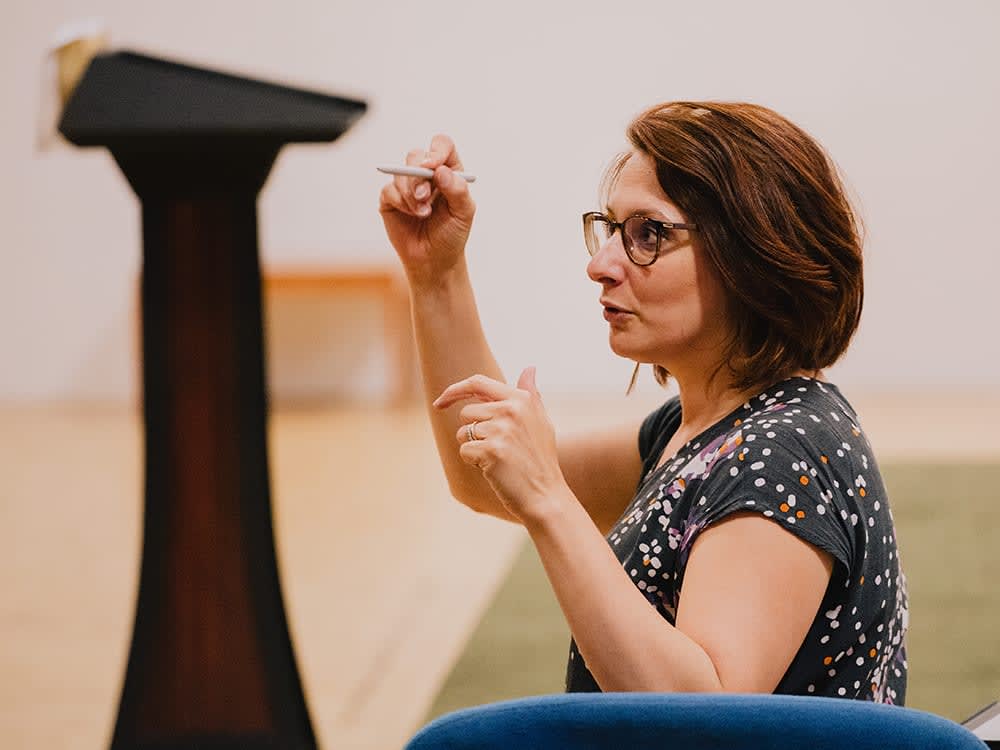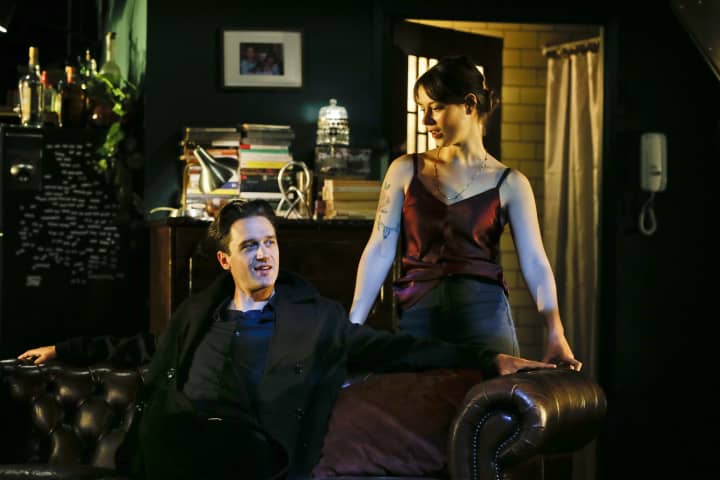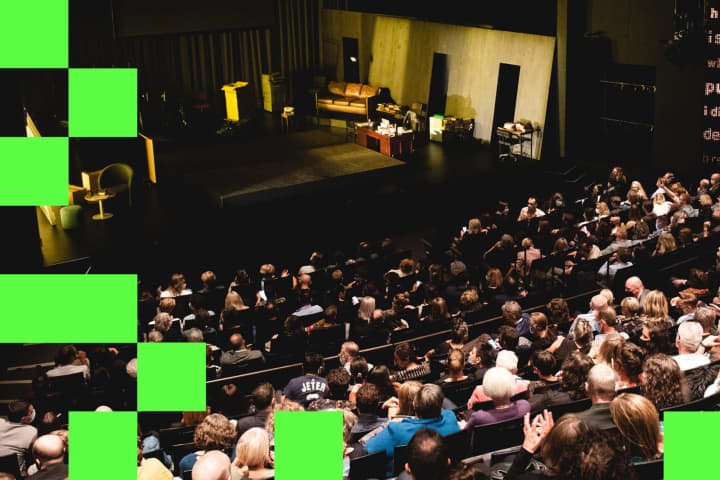Petra Kalive is directing actor Izabella Yena, alongside Dan Spielman, in Sexual Misconduct of the Middle Classes. The play, by award-winning Canadian playwright Hannah Moscovitch, presents a #MeToo-era take on archetypal student–teacher romance stories, and as Yena told Kalive, it ‘inverts all our expectations and perceptions’.
What were your earliest impressions of this script?
The first time I read the script, I was probably half way through when I started thinking why? Why do we need to see this story again? The trope that was being portrayed felt too familiar and too easy – I wanted more, more resistance, more agency for both Annie and myself as a woman. But as I kept reading it became obvious that the play inverts all our expectations and perceptions. I re-read the script many times with a new and different perspective, one with greater understanding and a sense of purpose for the characters. Through this filtering of my own initial judgements I started to grasp the true intentions and power of the play.
Can you break down the two characters, Jon and Annie, for us? How have these characters evolved in your mind from when you first read these parts?
Jon is a novelist. Widely acclaimed, intelligent and successful, he is currently lecturing at the university attended by Annie. Annie, who is a budding writer herself, idolises Jon and his work and takes a deep fascination in his lectures. Young and capable, Annie is highly ambitious (in the way a teenager so innocuously can be) but her youth is not to be synonymous with heedlessness. In fact, this is one of the aspects of her that keeps changing for me the more I read the play. I’m interested to learn what Annie is aware of and what she learns and to discover more of her in rehearsals.

Izabella Yena rehearsing Sexual Misconduct of the Middle Classes. Photo: Jacinta Keefe
Without giving anything away, what (in your opinion) does the work seek to explore and ultimately achieve?
One of the strongest themes that resonated with me is the idea of power and how it can be so easily exploited. The play uses a familiar and known relationship archetype to explore this because it gives us a basis of moral range; we know roughly where we stand. From that safe place we can dissect the power struggles and imbalances that ensue. Of course, ultimately the exploration of power speaks to the higher idea of harassment – particularly that of a sexual nature – and what that constitutes and its repercussions.
In some ways, this play feels ripped from the headlines and its themes of privilege and power remain frustratingly pertinent. How do you think public movements such as #MeToo have influenced current artistic output, personally and professionally?
Absolutely, I think the social and cultural consciousness of a community or nation often has a direct impact on the art we see and make. Theatre and film has always done that in a way, especially contemporary theatre – it’s reactionary, speaks directly to its audience and is highly in the zeitgeist. But that’s part of its function. The art we see in our city is a direct reflection of the thoughts and beliefs of our society.
‘Power is a choice and often a privilege, and you can choose to abuse it or use it kindly.’
We come to the theatre to be challenged and to learn. Yes, entertainment plays a part, but at our core humans want to feel as if they aren’t alone; we’re always looking for answers. I feel a sense of duty to contribute to creating these new stories because these movements or cultural uprisings are a part of myself and people I know and they deserve to be heard.
Why do you think people are so fascinated by the archetypal ‘student-teacher’ relationship?
The student-teacher relationship has a lot of in-built drama that can be both repulsive and alluring. Frequently it involves fame, success, pushing the boundaries of professional and personal life. The usual age discrepancy speaks to the power and vulnerability present in this kind of a relationship also. As the archetype often portrays, it’s rarely a happy ending, so it gives audiences a sense of understanding and grounding before they enter the story.

Petra Kalive rehearsing Sexual Misconduct of the Middle Classes. Photo: Jacinta Keefe
Are you nervous about how this work will be received?
I wasn’t until I this question! I try not to get too caught up in what people may think. To me the play has value and a place in our artistic landscape at the moment. It’s daring and courageous and deserves to be told with dignity. I’m sure it will challenge some audiences – I hope it does! But in the same vein, I hope those audiences will walk away and continue to talk about the themes of the play.
Is there a grey area when it comes to relationships where there is an obvious power imbalance?
I think so. There can be all types of power imbalances that exist and we can’t assume that all are inherently ‘wrong’ or ‘evil’, but there is definitely a negotiation that needs to happen, or acknowledgement of the imbalance. There’s obviously also a moralistic side to this question that is less grey and far more black and white. Power is a choice and often a privilege, and you can choose to abuse it or use it kindly.
What are you most looking forward to about bringing this show to MTC audiences and the broader city of Melbourne?
Honestly, the conversations it will breed. Rehearsals hadn’t even begun [last year, when the play was first scheduled] and I’d already been having some really rich discussions with friends and colleagues.
See Sexual Misconduct of the Middle Classes from 6 March 2021 at Southbank Theatre. Tickets on sale now.
Published on 18 February 2021





